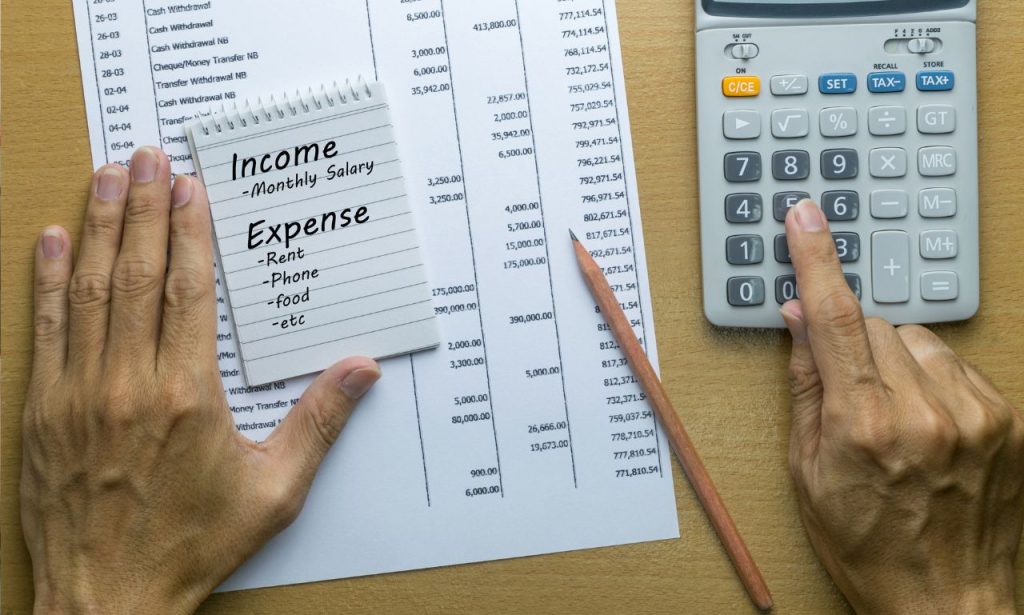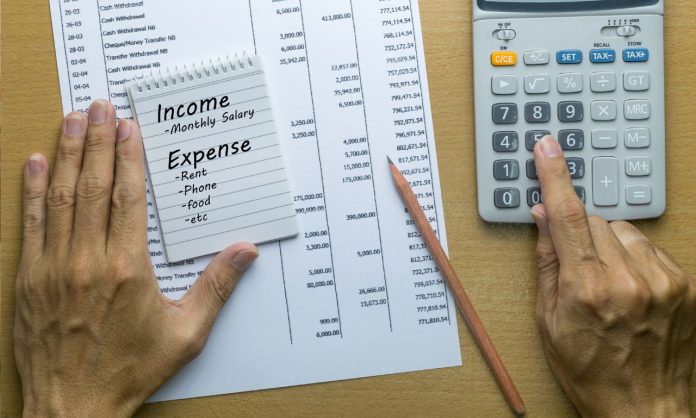Household expenses can add up quickly, and without a solid plan, it can seem impossible to save money or stay within a budget. Whether you’re trying to pay off debt, save for a big financial goal, or simply reduce monthly expenses, there are effective ways to drastically cut household expenses without feeling deprived. In this guide, we’ll explore detailed strategies that will help you take control of your finances and improve your overall financial health.
Cutting household expenses isn’t about giving up everything you love; it’s about being strategic and mindful of how you spend your money. By making some intentional changes, you can save hundreds, even thousands, of dollars a year. This article will provide actionable advice on how to cut down on everything from utility bills to entertainment costs, allowing you to work toward your financial goals without sacrificing too much.
How to Drastically Cut Household Expenses
1. Review Your Monthly Expenses and Budget Wisely

The first step to drastically cutting household expenses is understanding where your money is going. Set up a monthly budget that takes all your expenses into account, from utility bills and mortgage payments to entertainment costs and groceries. A detailed expense tracking exercise can give you insights into your spending habits and help you identify areas to reduce.
- Tip: Use budgeting apps like Mint or YNAB to track your monthly expenses. These tools can help you see the big picture of your financial plan and identify unnecessary expenses.
2. Reduce Utility Bills with Simple Adjustments
Utility bills are a significant part of household expenses, but they can be lowered with some conscious efforts.
- Install energy-efficient light bulbs and a programmable thermostat to manage energy usage better.
- Take shorter showers and consider using cold water for laundry to save on heating costs.
- Turn off lights and unplug appliances when not in use.
Small adjustments like these can help reduce energy costs significantly, making a difference in your monthly expenses.
3. Cut Down on Subscription Services
Streaming services, gym memberships, and subscription boxes may seem harmless on their own, but collectively they can add up to a lot of money. Audit your subscriptions regularly and cancel those that you no longer use or that you can live without.
- Look for unused subscriptions by reviewing your bank statements or using an app that can help you track and cancel unnecessary subscriptions.
- Instead of multiple streaming services, consider sticking to just one or taking advantage of free trials to explore alternatives.
4. Lower Your Housing Costs
Housing is one of the biggest contributors to monthly costs, but there are ways to reduce this expense.
- Refinance your mortgage: If you’re a homeowner, refinancing your mortgage could reduce your monthly mortgage payment by getting a lower interest rate.
- Rent out extra space: If you have a spare room, consider renting it out for extra money through Airbnb or to a long-term tenant.
- If you are paying Private Mortgage Insurance (PMI), try to reach out to your lender about ways to eliminate it, such as increasing your home equity.
5. Optimize Your Cell Phone Plan
Cell phone plans can be expensive, but they don’t have to be. Switching to a more affordable cell phone plan can save you hundreds of dollars annually.
- Consider switching to a prepaid plan or one that limits data usage. Prepaid plans often have no contract and lower monthly costs compared to traditional cell phone contracts.
- Evaluate family or shared plans that may provide better value for multiple lines.
6. Meal Planning and Cutting Down on Food Costs
Food is one of the biggest household expenses, but you can cut costs with meal planning and better grocery habits.
- Create a shopping list and stick to it, avoiding impulse purchases. This helps reduce unnecessary expenses and ensures you only buy what you need.
- Plan meals based on what is on sale that week and use coupons to get discounts.
- Avoid eating out often; restaurant meals can be replaced with home-cooked food that’s both cheaper and healthier. Preparing meals in bulk can save both time and money.
7. Reduce Credit Card Debt and High-Interest Payments
Credit card debt can be a major financial burden due to high-interest rates. Consider these options to manage and reduce your debt:
- Debt consolidation: A debt consolidation loan can help simplify multiple debt payments into a single monthly payment at a lower interest rate.
- Reach out to a nonprofit credit counseling agency to help create a debt management plan.
- Use an automatic transfer to make sure you are always on time with your payments, avoiding late fees and high-interest charges.
8. Make Use of Money-Saving Challenges
Participating in money-saving challenges like the 52-week money challenge can be a fun way to put away some extra cash. Each week, deposit a certain amount into your savings account, gradually increasing the amount until you hit your target.
- You can also use the 24-hour rule to avoid impulse buying. Wait 24 hours before making a purchase, and you may find that you don’t really need the item after all.
9. Shop Smart and Use Coupons
When it comes to grocery shopping, being strategic can save you a lot of money on groceries.
- Use coupons and cashback apps like Rakuten and Ibotta to save money during each shopping trip.
- Avoid impulse buying by shopping with a list and eating beforehand. Hunger often leads to buying more than you need.
10. Switch to Affordable Insurance Options
Insurance is another area where you can save by doing some comparison shopping.
- Car insurance: Get quotes from different insurance companies to find affordable car insurance. Bundle your homeowners insurance and auto insurance for discounts.
- Consider adjusting your life insurance policy to see if a lower rate is available or if you’re over-insured.
11. Explore Public Transportation or Carpooling

Transportation costs, including auto loans, fuel costs, and car insurance, can be drastically reduced by using alternatives.
- Consider using car-sharing services or carpooling to cut down on gas expenses.
- If you live in a city with a robust public transportation system, consider giving up your car altogether and saving on all associated costs.
12. Implement Energy-Saving Practices
Reducing energy costs is an easy way to cut down on household expenses.
- Install a smart thermostat to automatically adjust heating and cooling to save on cooling costs.
- Lower the temperature of your water heater and use cold water for most laundry loads. This can lead to actual savings over time.
- Seal drafts around windows and doors to keep your home insulated, reducing your heating and cooling costs.
13. Embrace Free and Low-Cost Entertainment
Entertainment costs can take up a big chunk of your budget if you’re not careful. Here are ways to drastically cut down without compromising on fun.
- Look for open-air events, community events, or festivals in your area that offer free or low-cost entertainment.
- Replace paid streaming services with free streaming platforms or check out books and DVDs from the library.
- Take advantage of admission to event volunteers to get free or discounted entry to popular events.
14. Set Spending Limits and Stick to Them
Using a budgeting app or setting spending limits can help keep your spending habits in check. The 50-30-20 rule is a popular budgeting approach that divides your monthly income into three categories:
- 50% for essential living expenses like rent, utilities, and groceries.
- 30% for personal spending, including entertainment and hobbies.
- 20% for savings and debt repayment.
15. Earn Extra Money Through Side Hustles
If cutting down expenses is not enough, consider earning extra money through a part-time job or freelance work. Many people find success in making money online through platforms like Upwork, Fiverr, or Etsy. This additional income can go directly toward paying off debt or boosting your savings.
- Consider using the extra time to pursue hobbies that can bring in income, such as selling handmade goods or offering online tutoring services.
16. Reduce Health and Wellness Costs
Healthcare expenses can add up quickly, but there are ways to save.
- Compare quotes for health insurance policies to find the best coverage at the lowest price.
- Take advantage of preventive care covered by insurance, as it helps to reduce long-term medical costs.
17. Consolidate Bank Accounts and Avoid Fees

Many banks charge monthly fees for account maintenance. Look for fee-free bank accounts to avoid these charges. Additionally, consider consolidating multiple bank accounts into one to simplify your finances and reduce the risk of incurring multiple fees.
Conclusion
Drastically cutting household expenses is achievable by making mindful choices and strategic decisions. From managing monthly expenses like utility bills and food costs to exploring ways to lower housing and insurance rates, there are numerous ways to improve your financial health. Remember, every small step counts, and consistent effort can lead to thousands of dollars in savings over time. Start by making a plan, set realistic goals, and celebrate each milestone as you reduce expenses and build financial freedom.
ALSO READ: Best Place to Spend 3 Months in Europe
FAQs
The best ways include reducing utility bills, lowering food costs through meal planning, canceling unnecessary subscriptions, refinancing to lower mortgage payments, and making use of free or low-cost entertainment options.
You can reduce monthly expenses by creating a detailed budget, cutting down on discretionary spending, using energy-efficient appliances, and reducing high-interest credit card debt.
Yes, budgeting apps like Mint, YNAB, and PocketGuard are great tools for tracking your spending, managing bills, and staying within your monthly budget.
You can lower utility bills by using a smart thermostat, sealing drafts, taking shorter showers, and using energy-efficient light bulbs and appliances.
The 50-30-20 rule is a budgeting method that allocates 50% of your income to essential expenses, 30% to personal spending, and 20% to savings or debt repayment.
